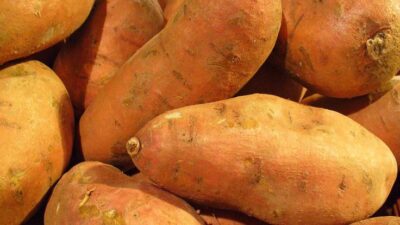Last updated on February 16th, 2025 at 08:00 am
For coffee lovers, the question of whether their daily cup of coffee will interfere with blood work results is important. If you’re scheduled for a blood test and you can’t go without your morning coffee, you’re not alone. Many people rely on coffee to jumpstart their day, but it’s essential to understand how caffeine and other compounds in coffee may impact the results of various tests.
In this guide, we’ll explore how coffee consumption can affect common blood tests, including glucose, cholesterol, and triglyceride levels, and what you need to know before your next checkup.
1. How Coffee Affects Blood Work
Drinking coffee before a blood test can influence several key markers, and understanding how is crucial for accurate test results. Here’s how coffee interacts with different aspects of your blood work:
1.1 Caffeine and Glucose Levels
Caffeine can cause a temporary spike in blood sugar levels, particularly in people with insulin resistance or diabetes. If you’re fasting before a blood test, it’s recommended to avoid coffee as caffeine can interfere with glucose testing, leading to inaccurate readings.
1.2 Caffeine and Cholesterol
While caffeine doesn’t have a direct impact on cholesterol levels, it may affect certain tests like the lipid profile. Research suggests that drinking caffeinated coffee may slightly elevate cholesterol levels, particularly total cholesterol and LDL (“bad” cholesterol), due to compounds in coffee that affect how the liver metabolizes lipids.

1.3 Coffee and Triglycerides
Triglyceride levels, which are measured in a standard lipid profile, can also be affected by coffee consumption. When consumed in large amounts, coffee can temporarily increase triglyceride levels, making fasting blood tests less reliable. However, the effect is usually short-term and might not be significant if you’re not drinking large quantities of coffee.
1.4 Caffeine and Other Blood Parameters
In addition to glucose, cholesterol, and triglycerides, caffeine can also impact other factors in your blood work, such as:
- Blood pressure: Coffee can cause a temporary rise in blood pressure, which might skew the results of a hypertension test.
- Kidney function: Coffee, especially in large quantities, can act as a diuretic and temporarily affect kidney function tests.
- Liver enzymes: Some studies show that regular coffee consumption may lower liver enzyme levels, which can be beneficial for people with liver conditions.
2. How to Prepare for Your Blood Test
To ensure accurate blood work results, here are some tips for preparing for your blood test:
- Avoid caffeine before fasting tests: If your blood test requires fasting, it’s best to avoid any caffeinated beverages (including coffee) at least 8-12 hours before the test.
- Stick to water: If you need a drink before your blood test, water is the safest choice. It won’t interfere with most tests and helps keep you hydrated.
- Consult your doctor: If you’re unsure whether coffee will affect a specific blood test, always ask your healthcare provider. They can offer personalized guidance based on your health needs.
For more details on preparing for health tests, check out Can You Drink Coffee Before a Blood Test? What You Need to Know.
3. Is Decaf Coffee a Better Option?
If you rely on coffee to start your day but need to undergo blood tests that require fasting, switching to decaf coffee might be a better option. While decaffeinated coffee still contains trace amounts of caffeine, it generally has a much lower caffeine content, making it less likely to interfere with blood test results. However, it’s still a good idea to avoid any coffee entirely if you’re fasting for a blood test.

FAQ: Does Coffee Affect Blood Work?
1. Can coffee affect blood sugar levels?
Yes, caffeine can cause a temporary increase in blood sugar levels, which may interfere with glucose testing, especially in people with insulin resistance or diabetes. It’s recommended to avoid coffee before a blood glucose test for accurate results.
2. Will drinking coffee raise cholesterol levels?
Coffee can slightly elevate cholesterol levels, especially LDL (bad cholesterol), due to the compounds present in coffee that affect lipid metabolism. However, the impact is usually minimal and not permanent.
3. Should I avoid coffee before a blood test?
If your test requires fasting, it’s best to avoid coffee, especially caffeinated coffee. Coffee can interfere with glucose, cholesterol, and other blood markers, making it difficult to get accurate test results.
4. Can decaf coffee be consumed before a blood test?
Decaffeinated coffee contains much less caffeine, making it less likely to interfere with blood tests. However, if you’re fasting for a test, it’s still safest to stick with water.
5. How long should I wait after drinking coffee before a blood test?
For accurate fasting blood work, it’s best to avoid coffee at least 8-12 hours before the test. This ensures that caffeine and its effects don’t interfere with the results.
Conclusion
While coffee has numerous health benefits, it’s essential to be mindful of its potential impact on blood work, especially when fasting. The caffeine and other compounds in coffee can interfere with several key test results, including glucose, cholesterol, and triglycerides. To ensure the accuracy of your blood test, it’s advisable to avoid coffee before fasting tests and consult with your healthcare provider if you have any concerns.
Explore more on how coffee affects health, including What Makes Specialty Coffee Beans So Expensive? or How Much Caffeine Is in a Cup of Coffee?.
Explore More:









